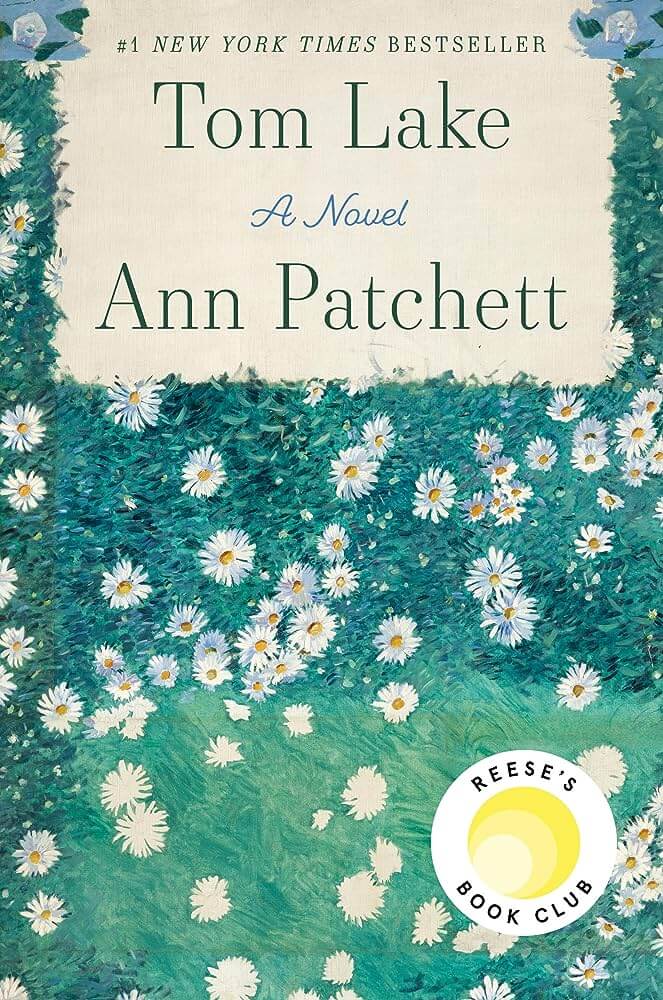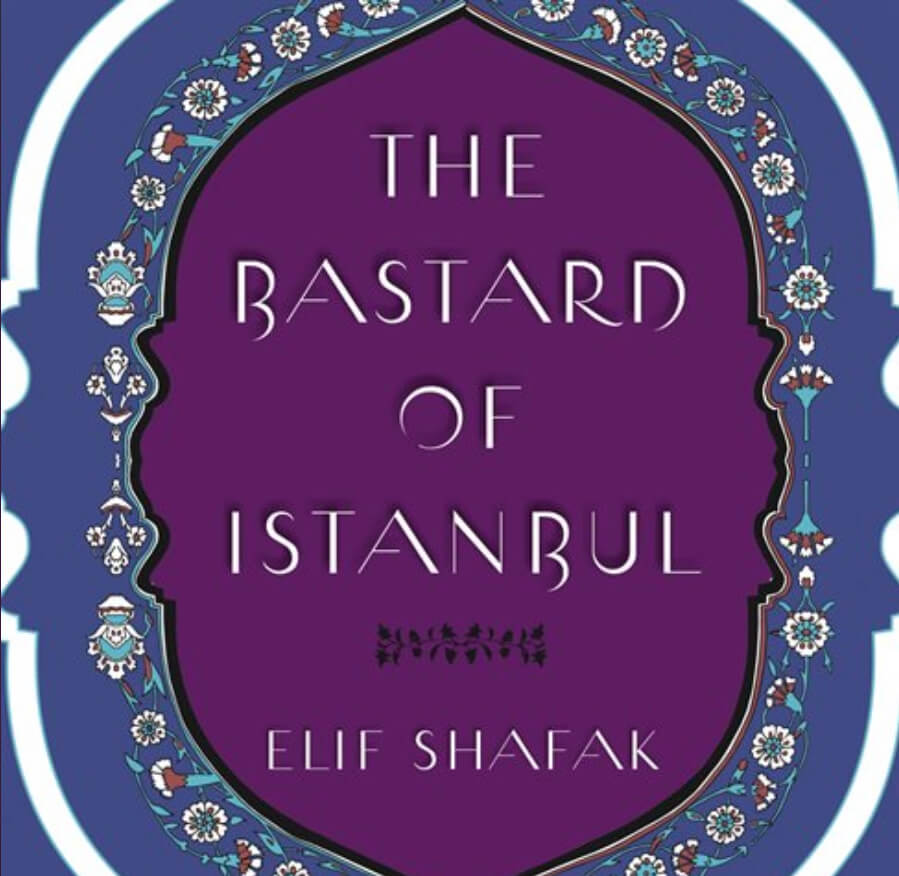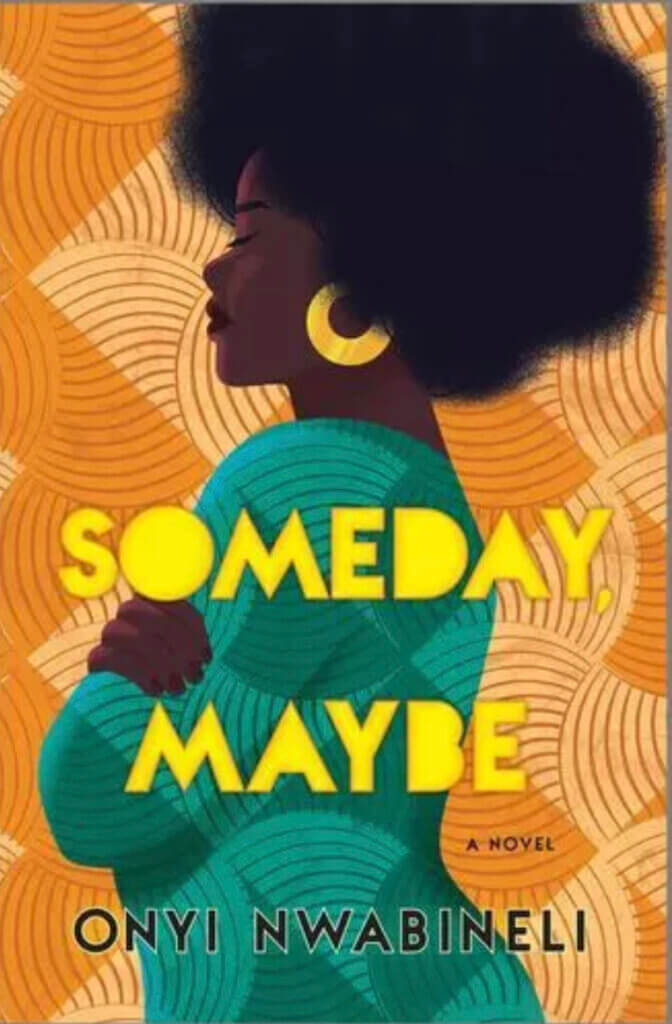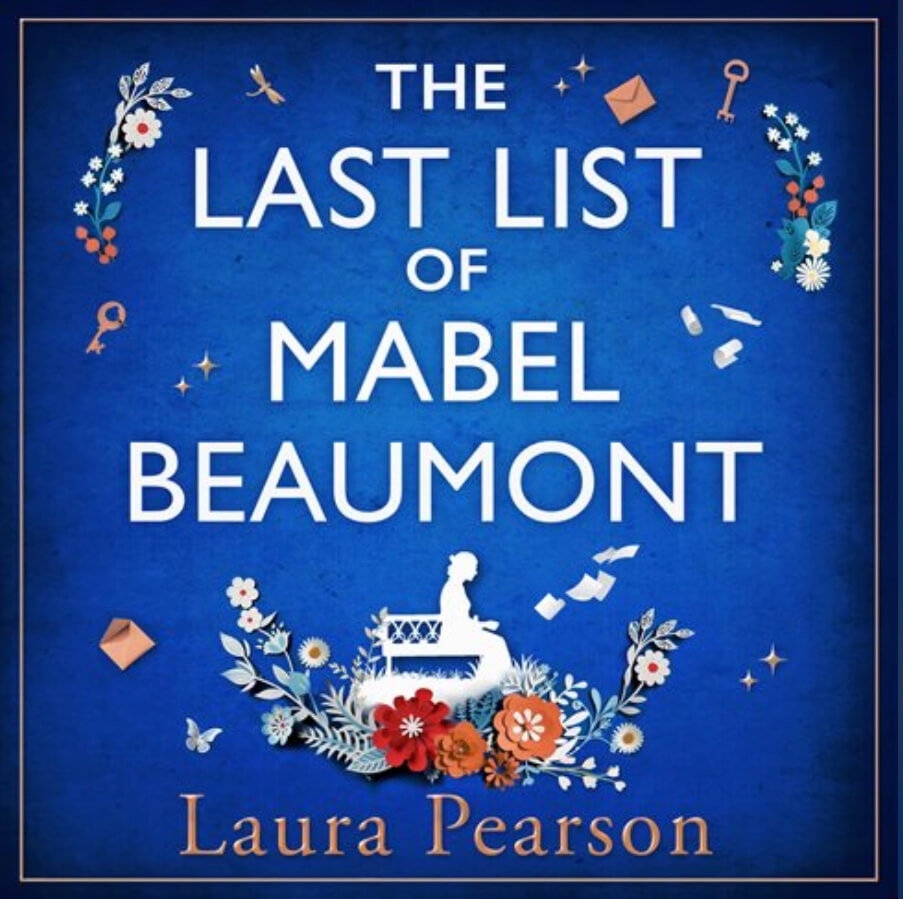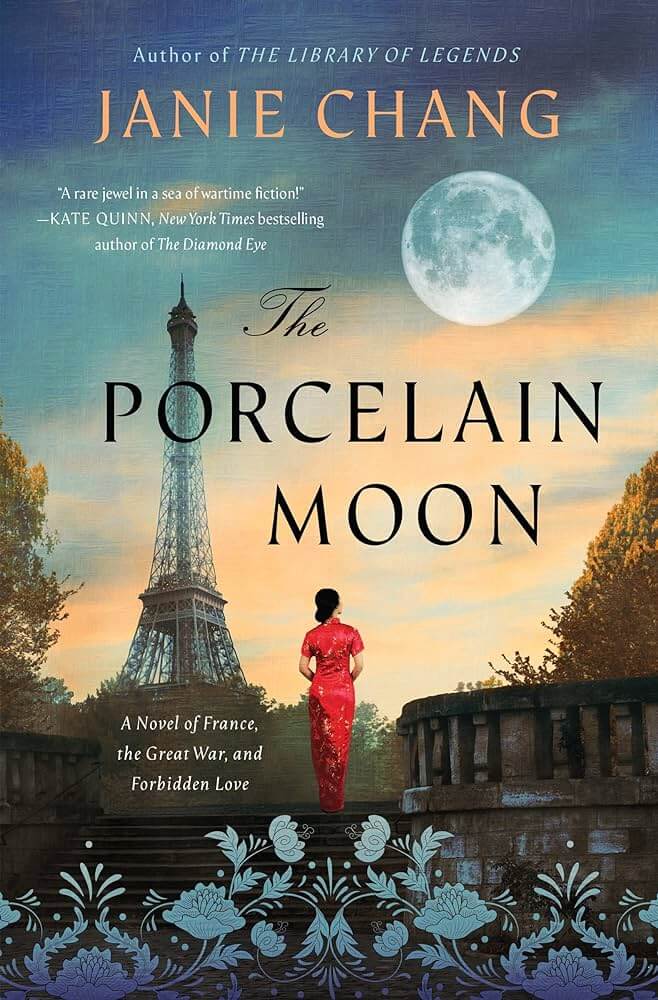
Summer Reading List 2024: 10 Books I Loved Reading this Year
We’re halfway through the year and summer is upon us. It’s time to grab a good book and hit the beach.
(Perhaps one of my recommendations below!)
None of these books is a hot new title, as is common with summer reading lists. Instead, this is a roundup of some of the books I have loved reading this year. Some are fun, some are painful, some are based on true events, some are written so beautifully that the writing is, itself, a character.
And each and every one is fiction. Sorry self-help and memoir lovers—no can do.
The past year has been difficult. Living through a deep personal loss, while simultaneously watching a genocide unfold on social media is a lot. And somehow, bizarrely, we just go on living—the bills piling up, the plans getting made, birthday celebrations and sleeping in. It’s hard to fathom how life can look so normal, thousands of miles away, tucked in our cocoon of feigned ignorance, the safety of being on the side with the guns and the tanks, an ocean separating us from the horrors.
The cognitive dissonance is brutal. Real life feels so brutal.
I’ve always liked mixing fiction and nonfiction, but the world is too hard and too dark right now. And since reality is so scary, so heart-wrenching, I’ve decided, very deliberately, to make reading an activity for pleasure—or dissociation. This means fiction ONLY. Getting lost in a tale for a few minutes a day. Escaping to somewhere else.
Don’t expect this to be all fluff books, it isn’t. I’ve got some historical fiction, lots of cultural commentary, a couple books about grief, and a 700-page Pulitzer Prize winner in the mix. But they are all fiction; well-told stories that can take you outside of yourself, and this very real world, for a little while.
Any links you see on this page are Amazon affiliate links. I think you should get your books from the library or support a small, local bookstore. But if you’re going to Uncle Jeff for reading materials anyway, you may as well help support this blog while you’re at it. You won’t pay more, but I’ll receive a small commission to keep the site running. Win, win, win.
Now, without further ado, let’s get into this book list. Before summer is over!
My Top 10 Books for Summer ’24
(10-ish)
“The rage dissipates along with the love, and all we’re left with is a story.”
― Ann Patchett, Tom Lake
1. Tom Lake, Ann Patchett
Ann Patchett strikes again! Those of you who have read my previous book posts know that I’ve been plowing through Patchett’s catalogue. Tom Lake is Ann Patchett’s most recent novel and is Just. So. Good.
Family drama, actual drama (it’s about actors!), and young love. The book is the story of Lara’s past, as told to her three daughters on their Northern Michigan farm. It is a haze of memories, juxtaposed with the present. Over the course of days and weeks, she gingerly unfolds the story for them of Peter Duke—the A-list actor with whom she shared a stage and a summer romance, back in their theater days. The flashbacks-and-forth make Tom Lake feel like a cozy fire-side tale; like a true story you’re hearing from someone you know, each bit of information vaguely familiar, like a part of your own family history.
Patchett’s insights into family and about love of different varieties—young and fiery, old and deeply comfortable—feel both ordinary and remarkable. She lifts the hood, invites you to read between the lines of dialogue, discover them for yourself. She’s brilliant at this, and Tom Lake is one of the best examples.
Poignant. Engrossing. Fun. Read Tom Lake. (And then all her other books!)
“A woman’s place is in the struggle”
—Julia Alvarez, In the Time of the Butterflies
2. In the Time of the Butterflies, Julia Alvarez
In the Time of the Butterflies tells the story of the real Mirabal sisters, who were assassinated for plotting to overthrow the regime of Rafael Trujillo, a brutal dictator who ruled the Dominican Republic from 1930-1961. During the reign of Trujillo, civil liberties were curtailed and corruption flourished. Those who spoke resistance ended up imprisoned, tortured, or, as in the case of the Mirabal sisters, murdered.
Any Dominican knows this story is true. And for those of you who don’t know, these sisters are the reason for the International Day for the Elimination of Violence Against Women, a global holiday on November 25.
The Mirabal sisters—Patria, Minerva, Dede, and Maria Teresa—became known by neighbors and community members as Las mariposas, “The butterflies”, for their activism, which gives the book its name.
In The Time of The Butterflies is a fictionalized account of their lives, told by all four sisters, from childhood until their tragic end, with only one sister remaining to carry on their legacy. Alvarez takes liberties to decide who the women could have been, their personalities, innermost thoughts, and it’s stunning. After the assassination of the three sisters, the tide turned swiftly against Trujillo, both within and outside of the Domincan Republic. The dictator himself was assassinated just seven months later.
This is a captivating tale about true events that changed the course of history. Although it is historical fiction, there is nothing stiff or arduous about Alvarez’ storytelling. I couldn’t put this one down.
“The truth is fluid, there is always another way to spin the story.”
― R.F. Kuang, Yellowface
3. Yellowface, R.F. Kuang
This book was an absolute delight. I listened to it on my hours-long drive to London’s Heathrow airport after a funeral and it brought the levity I needed in my life at just the right time. If you like a scandal, public feuds, and getting allll the tea, served HOT, Yellowface might before you.
When “It-girl” author Athena Liu dies suddenly in a freak accident, fellow author and frenemy, June Hayward has a big decision to make: Let Athena’s newest book project (a freaking masterpiece) languish in its rough draft form, never to see the light of day… or steal it.
June Hayward becomes Juniper Song, and the work becomes critically acclaimed. It seems she’s gotten everything she always dreamed of, but fame is fickle and public opinion easily swayed. When questions arise about Juniper’s ethnically ambiguous background and just how much she was “influenced” by Athena Liu’s work, things get messy. This is a story of ambition and the slow, painful struggle of making dreams come true. It’s about decisions. It’s about stepping in the shit and how to recover. It’s about social media, critique, and cancelling. Who has the right to tell which stories? And where, exactly, do we get our sense of self?
I heard someone say once, in talking about the Academy Awards, that “Hollywood loves to celebrate itself.” That year La La Land and Birdman, two films about the crush and lift of acting, were both up for Oscars for best picture.
I can’t deny that one of the reasons I loved Yellowface was that I could understand so many of the character’s emotions around writing—could understand the motives to her less-than-virtuous actions. I loved reading about writers. About their relationships to one another, with publishing, with their fans. I loved reading about how someone felt about the work they’d poured hours and hours of brain cells into. About how corrupting a little taste of fame can be, and about how capricious the reading, tweeting public can be. I loved that the novel in question reminded me a good deal of an actual novel I’d read (The Porcelain Moon, by Janie Chang, recommended below.) I loved how unhinged the book became at points.
Yellowface is a little over the top. But I loved it for that. If you are into writing OR reading, you might like this one. If you want a zippy little novel, a page-turner without the murder (or so we think!), then Yellowface is for you.
“Just because it is in Malibu’s nature to burn, so was it in one particular person’s nature to set fire and walk away.”
― Taylor Jenkins Reid, Malibu Rising
4. Malibu Rising, Taylor Jenkins Reid
Malibu Rising will suck you in from page one. I remember thinking on my jumpseat, in the first few pages, that I could not wait to find out what happens in this story. It’s a gift to be able to bring an audience in so quickly, especially since I did not feel that way about Jenkins Reid’s other books. Even The Seven Husbands of Evelyn Hugo—one of my favorites—was a slow start.
Not so with Malibu Rising. Meat first, bread later.
The story follows Nina, Jay, Hud, and Kit Riva, four siblings with a rockstar father and enough secrets to sink a ship.
The book, set in beautiful Malibu, California, bounces back and forth between the past and present in the lead up to the Rivas’ famous end of summer bash; the party of the season, where anyone who’s anyone shows up and anything can happen. It explores the family’s origin story, their father, Mick Riva’s pre-fame life and how he swept their mother, June, off her 17-year old feet. It covers the rise of a star and the consequences for his family. Deadbeat dads, single moms, and later, a brood of parentless children, huddled close to one another, making it work.
Malibu Rising is a commentary on wealth and fame, on family dynamics—the gritty and the gleaming. It is about resilience. It is about figuring out what you want, and how much courage it takes to actually go for it. It is a surfer soundtrack, salt air and fried seafood wafting from the pages, hair whipping in the ocean breeze, above an open convertible top, while driving down the PCH. It’s the shabby underneath the glitz. It’s a filter of washed-out color and nostalgia.
What Taylor Jenkins Reid does so well is shows the lineage of relationships, from sparks to explosions, cracks to canyons, in great, compelling sequence. The lines between our characters, between them and their origin stories, are so solid-handed it feels almost like watching a documentary. Like these people, the webs they weave, must be real.
There is no better book to bring to the beach with you this summer. Run don’t walk to pick up Malibu Rising.
“The past lives within the present, and our ancestors breathe through our children.”
― Elif Shafak, The Bastard of Istanbul
5. The Bastard of Istanbul, Elif Shafak
The Bastard of Istanbul was a random recommendation in my library app, likely provided because I’d been branching out, culturally, with my literature picks. According to the algorithm, it was the next logical choice after Etaf Rum’s “A Woman is No Man,” a story of Palestinian women in one extended family. And you know, I really liked it.
The Bastard of Istanbul is a story about family, as many of my picks this season are. And it’s about difficult shared histories—how the past shapes the present. The story revolves around an Armenian-American and a Turkish family who become linked. The backdrop, like a shadow always lurking, is the Armenian Genocide, which took place in 1915-16 at the hands of the Committee on Union Progress (CUP), or “Young Turks,” in what became modern Turkey. This event, of mass murder and deportation, has shaped the collective history of Armenians everywhere. Shafak’s novel demonstrates the trickle-down effect, from collective trauma into individual pains, through examining one family tree.
There are also deep scars in the Turkish family presented in the novel, which are hard to read in moments. It could be a tough balance, but Shafak does a good job of portraying the nuance of wounds on both sides, without conflating them or negating the wrongs done to the Armenian people.
There are several colorful characters in The Bastard of Istanbul, including the headstrong Zehlia, clairvoyant sister Banu, and the American, Rose, who seems to hate all things Armenian and Turkish but somehow marries into both cultures. The story centers around two teenagers—Asya, a Turkish girl with no father, for whom the book is named, and Armanoush, an Armenian-American who goes to Turkey, looking for her past.
There are difficult subjects in this book, including genocide and sexual violence. But there is also a lot of levity. Between magic realism evocative of Isabel Allende (evil genie anyone?), a sarcastic whimsy a la Salman Rushdie, and cultural references to Johnny Cash and internet chatrooms, this novel moves itself along, without feeling too heavy, despite its darker themes.
“isn’t the whole point of things—beautiful things—that they connect you to some larger beauty? Those first images that crack your heart wide open and you spend the rest of your life chasing, or trying to recapture, in one way or another?”
― Donna Tartt, The Goldfinch
6. The Goldfinch, Donna Tartt
I knew nothing about The Goldfinch going into it, other than it was a Pulitzer Prize winner. But once I got into the story, there was something very familiar about it.
I kept being harkened back to Demon Copperhead, Barbara Kingsolver’s novel about the very eventful life of Damon, a boy with little resources, trying to make it to adulthood in Appalachia. (Find my review here.) I have since discovered, through the algorithm’s recommending cultural think pieces, that there’s good reason for this. Apparently, both The Goldfinch and Demon Copperhead are based loosely on the story line of Charles Dickens’ David Copperfield. I have not read it yet, but I guess now I’ll have to, to complete the trifecta.
The Goldfinch follows Theo Decker, just 13 in the beginning of our saga, through a turbulent life.
After a tragic accident claims his mother, Theo’s life is turned upside down. He is swept through different households, is cared for by wealthy friends, an alcoholic father, and an antiques dealer with whom he shares only a sliver of connection. Throughout his trials and tribulations, Theo clings to the one thing that feels familiar and like his mother—a famous painting stolen from the wreckage; one he shouldn’t have but is in too deep to give back.
The book takes you to some seedy places—the underbelly of the art world, smoky casinos, a grayhound bus station, a backyard pool, full of vomit and blood. It isn’t light or fun, honestly. At least Kingsolver’s rendition of the arc was interlaced with some humor. Not so with The Goldfinch.
But what it has going for it, besides a character you want to protect from everyone, including himself, and the pure, palpable anxiety you’ll feel about the painting, is solid gold writing. Tartt is masterful. Her words are carefully chosen, her prose is so smart and searing that I felt dumb a time or two, while reading. Other times I was head over heels in love with a sentence. The book is intense but worth it. Just don’t read it if you’re already depressed. I think I would have preferred the audiobook for this one, just because it is so long (700+ pages) and heavy.
If you’ve read The Goldfinch and Demon Copperhead—or David Copperfield (Tri-fecta readers!) let me know what you think, comparatively speaking. Which did you like best and why? And is the movie version worth checking out? Let us know in the comments!
“Grief makes you believe you are special, its one and only; like it is not careening around destroying millions of lives every day and is devoting all its unwanted attention on you.”
― Onyi Nwabineli, Someday, Maybe
7. Someday, Maybe, Onyi Nwabineli
Ahhhh, grief.
This was a timely read, in January, as I was navigating myself through a whole host of emotions, including and not limited to intense anger and stark grief. The fact that it was a randomly selected book from a free pile in the airport made it feel all the more serendipitous and comforting when the main character voiced my own emotions.
Someday, Maybe follows Eve, our main character, who has recently lost her husband, Quentin, to suicide. The kicker? No explanation. No note. No warning signs. No sinking feeling that something was wrong. He was there, and then he wasn’t.
The book follows Eve through her stages of grief, through her emotions, and through the difficult tasks of waking up each day, and interacting with other humans, continuing to live under what feels like an impossible burden. Obviously it’s not a barrel of laughs, but it’s still a manageable beach read. If you’ve ever lost someone, or know someone who has, it’s touching and eloquent. If you’ve ever been angry at a dying or dead person, this book will rock you. There were so many times throughout Someday, Maybe that my feelings were validated, through Eve’s words and emotions. There were so many “YES. EXACTLY.” moments while reading the passages about grief—the analogies and metaphors, the thousands of ways to describe what we think is indescribable.
I liked this book because it felt healing. But I would also like to read the author’s other works. Her style is simple yet expressive, the personality of the characters showing through in each bit of dialogue, the relationship dynamics fully on display, even when only one of them is alive. Writing about grief: It’s a Yes for me, dawg.
“The most important thing about a person is always the thing you don’t know.”
― Barbara Kingsolver, The Lacuna
8. The Lacuna, Barbara Kingsolver
The Lacuna is a chronicle of the life of fictional, famed writer Harrison Shepherd. It hops back and forth between Mexico City and the US, begins with Harrison’s childhood, and takes us all the way through his winding career, peak fame, and his ultimate demise. From humble beginnings, to working as a cook for artists Frida Kahlo and Diego Rivera, becoming a secretary for Lev Trotsky, the exiled communist dissident from Russia, to his acclaim as an author of Aztec-centered epic novels, there is no shortage of intrigue. We take a jaunt through McCarthyism and the Red Scare, anti-war protests in DC, and several other historical moments.
Shepherd’s closely guarded personal life is another source of intrigue, as we make our way through pages and pages of his old diaries, with the help of his former assistant, and wonder about what he’s not saying.
I loved this book because of its ties to Mexico City (where I’ve spent a lot of time) and its use of famous historical figures. It wasn’t a book I flew through, was a bit more dense than Kingsolver’s Demon Copperhead, but it was a really good read.
“Once you know something, you forget what it was like to not know it.”
― Nikki Erlick, The Measure
9. The Measure, Nikki Erlick
One morning, on a day seemingly like any other day, every person, in every household in the world, wakes up to find a small wooden box at their doorstep, bearing the inscription “The measure of your life lies within.”
Those who open it find a single piece of string, and eventually, it is understood that the length correlates to the length of the recipient’s life. Would you open the box? Would you want to know? Would it be freeing or panic-inducing? Are the dates really set in stone? Can you hack your way out of fate?
The concept of The Measure sounded interesting. It brings up so many questions, and (not to beat a dead horse, but) when you’re witnessing someone young dying in real life, they’re the same questions that are running through your mind already. Like, a lot.
How would it feel to know? What would you do differently, if anything at all? And how would having this information affect society on a larger scale? The author makes guesses that don’t sound far-off. Creates plausible scenarios, if you’ll only suspend your disbelief of the original premise. And why wouldn’t you? These are the things we think about when looking up at the stars, or smoking too much weed, or laying awake at night.
There were little things that bothered me—several of these books have characters whose stories intersect. I like that setup overall, but I think it can become fatiguing after too much of it.
*Oh, this character just happens to run into that one, who we were also previously discussing? Come on.*
But overall it is a thought-provoking storyline that I liked a lot. There is even a twist at the end, which surprised me, since the whole thing was pretty twisted.
Read this book. Let me know what you think. Would you want to open your box—do the best you could with all the information? Or go on living as humans always have, one day at a time, every next moment a step into the great unknown.
“And I wondered, was marriage always like this, with so many truths hidden beneath the conversation you were having? So much hiding, and pretending.”
― Laura Pearson, The Last List of Mabel Beaumont
10. The Last List of Mabel Beaumont, Laura Pearson
There is something comforting in reading about grief while you’re grieving. Somehow The Last List of Mabel Beaumont manages to address grief and loss while still being a light, airy read. “Cute” is the word that comes to mind, rather than “sad”, and when I read the book, sad fiction was the last thing I needed.
Shortly after losing her husband of sixty years, Mabel Beaumont finds a note in his handwriting, a command: “Find D”. This is what prompts Mabel’s mission to track down her long-lost best friend, Dot. It is a difficult feat after 60 years of silence, but she will have a cast of characters to help her out. You start reading to find out what happened to make Dot disappear all those years ago, but you’ll stay for the side characters along the way. This book is about friendships, in the unlikeliest of places, accepting people the way they are, the dangers of meddling in other people’s business, and the utter joy of helping others when you can. It was light, it was fun, it was also sad and honest.
I liked this book because of its small-town English setting. It reminded me of a place I’ve been to before, once freshly in love, and a dozen more times in varying stages of grief. It reminded me of strolls along the canal to the tiny downtown area, passing locals with their dogs. I could see the stone walls on either side, walls older than America, plants growing in the cracks. Could see the small shops, and hear the chatter of the locals passing, a tongue different than my own and lovely. They drank tea in the book, like we did in real life—debriefing for the evening in front of the TV, or during the day, waiting for news from the doctor, in the morning with visitors in the garden, in the living room, all of us lounging around, discussing the football match, his big plans.
Between the setting and the narrator’s voice, it felt familiar. Like a small way to be back in a place I’ll probably never see again. It was soothing. And even if you’ve never been to this little town in England, maybe it would be just as soothing for you, too, this summer.
“But worse than anything, whatever First Wife was arranging, for her right now, it would send Pauline back to China, far away from everything she loved.”
― Janie Chang, The Porcelain Moon
11. The Porcelain Moon: A Novel of France, the Great War, and Forbidden Love, Janie Chang
The title had me worried, but you do NOT need to be a history buff or war-obsessed to fall in love with Janie Chang’s The Porcelain Moon. The book is set in WWI France and tackles the seldom talked about Chinese labor force that aided the war effort.
(Remember we discussed this earlier, with Yellowface? Read them both and tell me if you see the parallel!)
The story is told through the perspective of two young women—Pauline, a Chinese immigrant living in Paris, desperate to avoid being sent back to Shanghai for her arranged marriage, and Camille, in Noyelles-sur-Mer, desperate to leave her abusive husband. Their stories intersect, and each plot line is interesting in its own merit. I’m not selling this book enough because my memory is foggy. Technically, I read it last year. I never gave an in-depth review then, so I’m telling you now. This is the perfect book to bring on your week-long beach vacation. Steep yourself in the nostalgia of WWI romance, take a stroll through Chinese antique shops, and Parisian splendor, and forbidden love. What else have you got to do?
And there you have it. My top 10 (ish) books for this summer. Have you read any of the titles listed? What did you think? If you hate all my book picks, then I don’t know what to tell you, I’m just a baby. Post YOUR best recommendations in the comments—since To Be Read lists are meant to grow and not to shrink.
For those of you feeling heavy—I see you, I feel you. Do what you can do and take small breaks to dissociate, preserve your sanity. Then get back in there. I hope some of these titles provide someone out there with entertainment, comfort, healing, or a bright spot of pleasure.
<3


